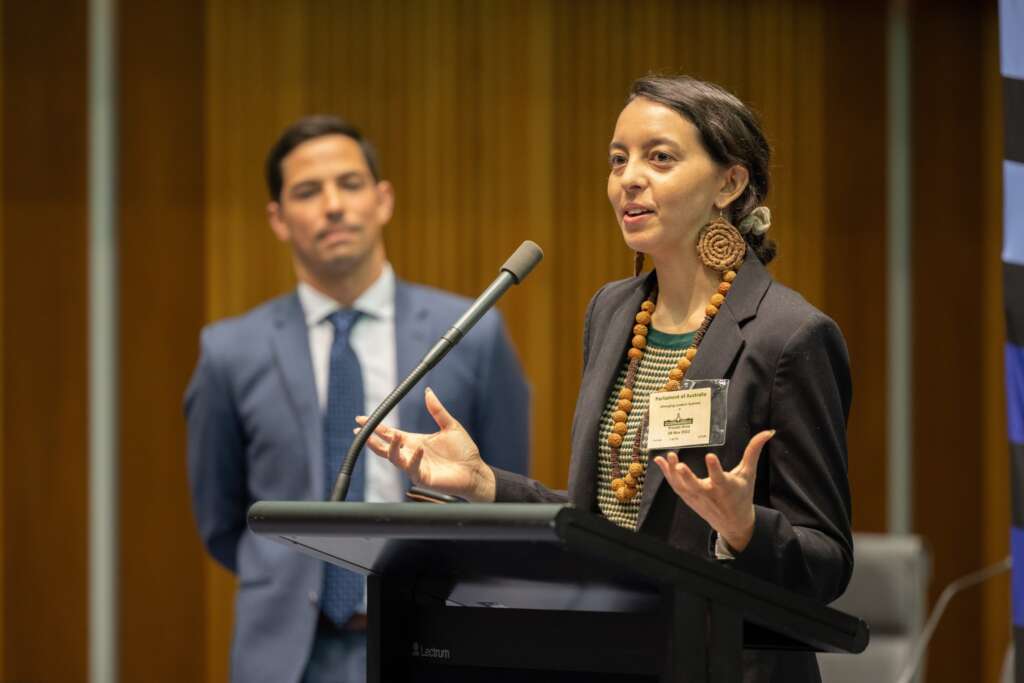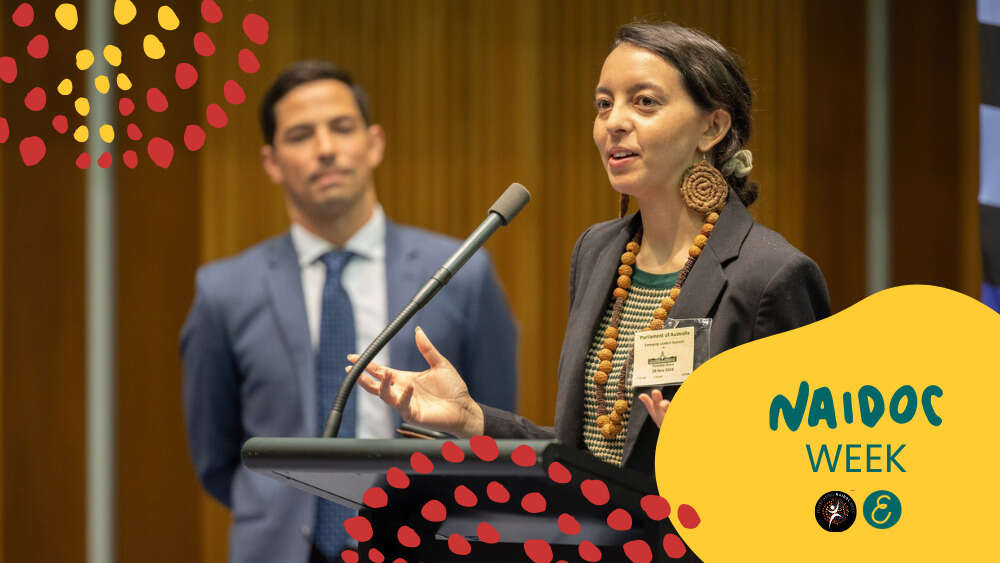'Stand with us, pray for us and listen'
I ask Australian Christians to engage …
This NAIDOC Week, we will hear from several First Nations Christian leaders.
Today, we listen to Bianca Manning.
Bianca Manning is a Gomeroi woman and Common Grace’s Aboriginal and Torres Strait Islander Justice Coordinator. Bianca currently lives in Logan, South East Queensland, on the lands of the Yuggera and Yagembeh peoples, working closely with Senior Aboriginal Christian leader Aunty Jean Phillips in the Brisbane and Logan areas.

Bianca Manning
Here’s what Bianca shares with Eternity readers.
If you could say anything to Australian Christians right now, what would you say?
I would ask Australian Christians to engage. To engage in prayer, in learning about Aboriginal and Torres Strait Islander peoples and our history (the good, the bad and the very ugly), and in building relationships with your local Aboriginal community.
NAIDOC Week is a perfect opportunity to do this, with so many events happening around the country and so much excitement in the air as Aboriginal and Torres Strait Islander people come together to celebrate our cultures, achievements and the strengths of our communities.
Please stand with us, pray for us and listen to our long-standing cries for truth, justice and for our voices to be truly heard.
I would also urge Australian Christians to engage in the unique opportunity that this year presents with the referendum on a First Nations Voice to Parliament. Every Australian will be voting yes or no in the referendum, and the outcome will have huge implications for the lives of Aboriginal and Torres Strait Islander peoples. So please stand with us, pray for us and listen to our long-standing cries for truth, justice and for our voices to be truly heard. One of the best ways to engage is by listening to Aboriginal Christian leaders and having conversations about the Voice with your friends and families. Resources to help you on this journey can be found at www.listentotheheart.org.au.
The church has been a double-edged sword for First Nations people – having been a tool of oppression and yet it’s also part of many people’s faith. How do you reconcile that as an Aboriginal Christian?
This is a huge question and one that I have wrestled with since first becoming a Christian.
Growing up, I had a very negative view of Christianity and my perception of God was tainted by the horrible things Christians had done to my people, including the Stolen Generations, which has directly impacted my family.
Since encountering the love, truth and presence of God for myself, I knew that God would not have approved of many of the things the church had done in his name. I also began to meet incredible Aboriginal and Torres Strait Islander Christian leaders (including Senior Aboriginal Christian leader Aunty Jean Phillips), whose faith in God has given them the strength to get through many of the injustices and racism they have faced, and to actively work to see freedom and healing for our people.
I now feel empowered by God to work with churches to address the sins of our past, to right these wrongs and to equip Christians to deeply value, listen to and walk together with Aboriginal and Torres Strait Islander peoples.
My elders give me so much strength to stand, to take up my cross and to serve my people.
The theme for NAIDOC Week this year is “For Our Elders” – what does that mean for you?
This year’s NAIDOC Week theme ‘For Our Elders’ grounds me in the knowledge that I am only who I am and where I am because of the elders who have come before me. My elders, both those of the past and those currently leading, guiding and encouraging me today, give me so much strength to stand, to take up my cross and to serve my people with love and in joy. I realise that I don’t face many of the challenges that my elders have faced throughout their lives, so I recognise their sacrifices and hardships and feel extremely grateful to be able to stand on their shoulders and have the opportunities that I have today.
Email This Story
Why not send this to a friend?


